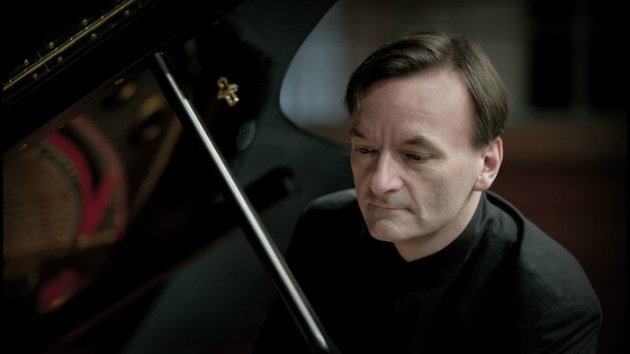In this excerpt from Lara Downe’s San Francisco Classical Voice interview with Stephen Hough, the universe of growth and musical ripening is explored.
Lara Downes: Your teacher, Gordon Green, was a great influence and inspiration to you, and you’ve quoted him as saying to you, when you were a young student: “I don’t care how you’re playing the piece now, what I care about is how you’ll play it in 10 years.”
Is that still true for you? As a deeply spiritual person, how do you experience the balance of making personal effort, and also just waiting for the revelation part of that learning process?
Stephen Hough: With this business of searching, I feel that I’m still very much a beginner. The idea of being patient for 10 years is not something that comes naturally to me at all! But I do think that it’s important for us to develop this kind of patience. It’s almost like farming. I mean, if you want to grow beautiful fruit, you do have to let the trees grow. You can dump chemicals on them and get them to produce very quickly, but if you want delicious fruit that’s going to grow season after season, even beyond your own lifetime, there’s a certain sort of time that simply has to pass, and I think it’s the same with learning music. We can learn a piece of music very quickly, but we have to be aware that it’s going to get so much richer over the years..
I applied Hough’s philosophy to a lesson on Bach Invention 13 in A minor. What I’d extracted from Hough’s poetically framed response, centered on the quality of study from the very start with its continuum of stages. If learning was quick and haphazard, it would not grow and blossom over time.
Naturally, as I taught an adult student last night, front and center in my mind, was laying a solid foundation in the early learning phase of a new piece:
1) Fingering had to be decided and solidified. (not a dice throw experience from one playing to another) It had to be a “musical” fingering that realized a phrase’s shape and contour. Sometimes replacing a thumb with an alternate finger at a cadence could make a qualitative difference. This applied to a segment in Bach Invention 13 in A minor where the student’s choice of a thumb instead of finger 2, forced an undesirable accent.
2) Rhythm, note durations, etc. needed specific attention.
3) Slow, separate hand practice factored into foundation building that would be the best bank deposit for future musical growth. It “banked” on good fingering choices and an awareness of context: what was happening structurally and harmonically to frame the learning process. (Included was a recognition of SEQUENCES)
Context reinforced each learning stage, and CONTOURING or SHAPING LINES was part of this phase, using singing as an aid to phrasing with equal attention to dynamics.
4) Spot practicing: Where finger trapping or redundant glitches occurred, making a conscious effort to work through specific measures that needed extra focus and attention became another solid, interest bearing bank deposit for optimum musical growth. (It’s opposite was meaningless repetition)
5) FRAMING ALL OF THE ABOVE was Hough’s PATIENCE mantra, that for me, was his most resonant theme.
Bundled into such wisdom, was an avoidance of tempo charging, or driving the learning process at a rate that failed to preserve quality in the present in order to insure ripening in the future.
LINK
Original Content: Pianist, Stephen Hough talks about growing a piece over time

No comments:
Post a Comment